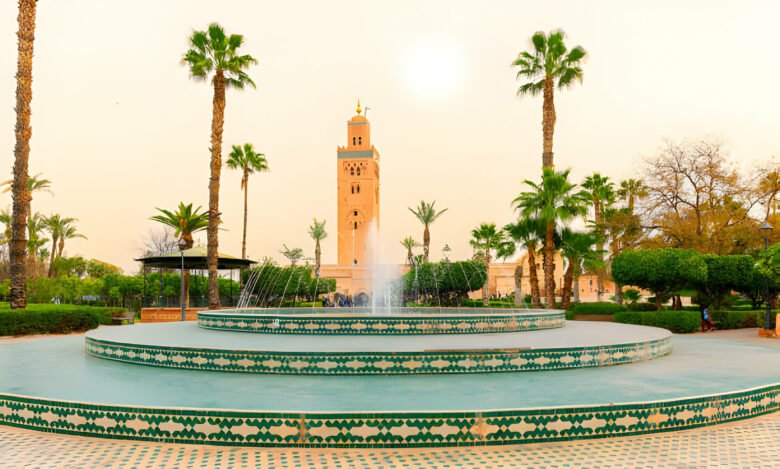Introduction
Hospitality is a value that has been deeply rooted in Moroccan culture for centuries. It goes far beyond a simple gesture of courtesy; it is an ancestral tradition that shapes social interactions and defines the identity of the Moroccan people. In this article, we explore the origins, customs and importance of this timeless tradition in Moroccan society.
Origins and traditions of Moroccan hospitality
Cultural heritage
Moroccan hospitality is deeply rooted in a cultural fabric that blends Berber, Arab and African traditions. The Berbers, the indigenous people, have always valued welcoming travelers and foreigners. This ancestral practice has been enriched over the centuries by Arab and African influences, shaping a singular code of conduct when it comes to hospitality. This cultural mix is reflected in the generosity of hosts, the attention paid to guests and the tradition of sharing meals and stories. Moroccan hospitality thus remains an essential pillar of society, testifying to its cultural richness.
Values and social norms
At the heart of Moroccan hospitality lie deeply-rooted values such as generosity, kindness and respect. Welcoming a guest is much more than a simple custom; it’s a sacred duty that offers an opportunity to demonstrate generosity and hospitality. Moroccans cultivate a special pride in their ability to open wide the doors of their home to anyone in need, whether a long-time friend or a stranger passing through. It is through these gestures of warm welcome that the social and cultural bonds within Moroccan society are forged and strengthened.
Role in Moroccan society
In Moroccan society, hospitality is more than just a custom; it has a profound meaning that transcends family boundaries to influence social and economic interactions. Moroccans cultivate close ties with their families and communities, and welcoming guests is much more than a simple courtesy: it’s a way of strengthening these ties. What’s more, this tradition is closely linked to honor and prestige; those who welcome their guests with warmth and generosity are elevated to the rank of respected figures in society. Moroccan hospitality is thus a fundamental pillar of culture, embodying the values of generosity, respect and solidarity.
Customs and rituals of hospitality
A warm welcome
The Moroccan welcome reflects the tradition of hospitality, where every guest is received with a sincere smile and a friendly handshake. Greetings like “Marhaba” or “Ahlan wa sahlan” express this benevolence and invite you to feel at home. This hospitality goes beyond simple gestures, encompassing offers of mint tea or coffee, as well as warm exchanges on a variety of topics. This warm atmosphere quickly creates a bond between host and guest, giving rise to a sense of belonging and comfort. This tradition reflects the richness of Moroccan culture, where hospitality is a fundamental value handed down from generation to generation.
Mint tea

Mint tea, the undisputed symbol of Moroccan hospitality, transcends the simple notion of a drink to become a truly sacred ritual. At the heart of every home, it embodies the respect and warm welcome reserved for guests. From the moment a visitor arrives, offering it becomes an immutable custom, reaffirming social ties and traditional values. The meticulous, ritualized preparation reveals the importance attached to every detail, while the service, often accompanied by sweet treats, symbolizes sharing and generosity. The moment of tasting becomes a convivial interlude where the exquisite flavors of tea mingle with the invigorating freshness of mint, for a sensory experience as rich as it is revealing of the Moroccan soul.
Traditional meals


Meals play a central role in Moroccan culture, symbolizing hospitality and sharing. When entertaining guests, Moroccans meticulously concoct a variety of traditional dishes, renowned for their richness and unique flavors. Each meal is a celebration of local gastronomy, with hosts paying particular attention to satisfying their guests with delicious, hearty dishes. These occasions are also conducive to lively exchanges, captivating stories and moments of open camaraderie, strengthening social and family ties. In short, Moroccan meals are not simply occasions for eating, but moments of sharing, tradition and conviviality, rooted in the heart of daily life.
The importance of hospitality in Moroccan culture
Influence on interpersonal relations
Hospitality is a fundamental pillar of the Moroccan social fabric, transcending mere conventions to become an essential element of daily life. It deploys a dense network of interpersonal relationships, weaving deep bonds between individuals and consolidating community ties. For Moroccans, welcoming guests is more than just a formality; it has a profound cultural value, symbolizing the importance attached to human exchange and generosity.
Economic and social implications
Hospitality also has important economic and social implications in Morocco. Tourism, for example, is a key sector of the Moroccan economy, and hospitality plays a crucial role in the traveler’s experience. Moroccans are renowned for their legendary hospitality to foreign visitors, and this reputation helps to attract millions of tourists every year.
Hospitality and tourism
Impact on tourism
Moroccan hospitality, a true emblem of the country, unfolds its charms through an ancestral culture of welcome. Travelers, thirsting for authenticity, are captivated by the promise of a unique human experience, where every foreigner is treated as an honored guest. In traditional riads, in the heart of labyrinthine medinas, or under Berber tents, every encounter is imbued with generosity and conviviality. This age-old tradition transcends borders, helping to forge Morocco’s reputation as North Africa’s tourist jewel. Between the bewitching scents of the bustling souks and lively discussions over mint tea, visitors discover the very essence of Moroccan hospitality, where the stranger is always welcome, like a member of the family.
Travelers’ experience
For many travelers, Moroccan hospitality is one of the highlights of their visit. Being welcomed into a Moroccan home, sharing a traditional meal and exchanging stories with your hosts are experiences that often leave a lasting impression. Travelers leave Morocco not only with memories of spectacular landscapes and historic monuments, but also with the feeling of having been warmly welcomed.
The evolution of hospitality in the modern era
Adapting to social and technological change
Despite rapid social and technological change, Moroccan hospitality remains deeply rooted in the country’s culture. Moroccans have adapted their traditions to modern realities, integrating social media and communication technologies to keep in touch with family and friends.
Maintaining traditions in a changing world
Although the world around them is changing rapidly, Moroccans remain attached to their ancestral traditions of hospitality. They continue to value the values of generosity, kindness and respect that have defined their culture for centuries, and are determined to preserve this precious tradition for future generations.
Conclusion
In conclusion, Moroccan hospitality is much more than just a custom; it’s an age-old tradition that defines the very essence of Moroccan culture. From mint tea to traditional meals and warm welcomes, hospitality is at the heart of every social interaction in Morocco. By preserving and enhancing this unique tradition, Moroccans continue to perpetuate the heritage of their ancestors and share their warmth and generosity with the world.
FAQs
- What makes Moroccan hospitality so special? Moroccan hospitality is distinguished by its warmth, generosity and authenticity. Moroccans attach great importance to welcoming their guests, and make a point of offering them a memorable experience.
- How do Moroccans express their hospitality? Moroccans express their hospitality in a variety of ways, including offering mint tea, preparing traditional meals and welcoming guests with warmth and friendliness.
- What impact does hospitality have on tourism in Morocco? Moroccan hospitality is one of the country’s main tourist attractions. Travelers from all over the world are attracted by the promise of a warm and authentic experience, helping to make Morocco one of North Africa’s most popular tourist destinations.
- Do Moroccan hospitality traditions evolve over time? Yes, Moroccan hospitality traditions evolve over time, but they remain deeply rooted in the country’s culture. Moroccans have managed to adapt their traditional practices to modern realities while preserving the essence of their ancestral hospitality.
- How can I experience Moroccan hospitality myself? To experience Moroccan hospitality first-hand, consider staying in a traditional guesthouse or taking part in a home-cooked meal. These unique experiences will allow you to discover the warmth and generosity of the Moroccan people in an authentic way.



